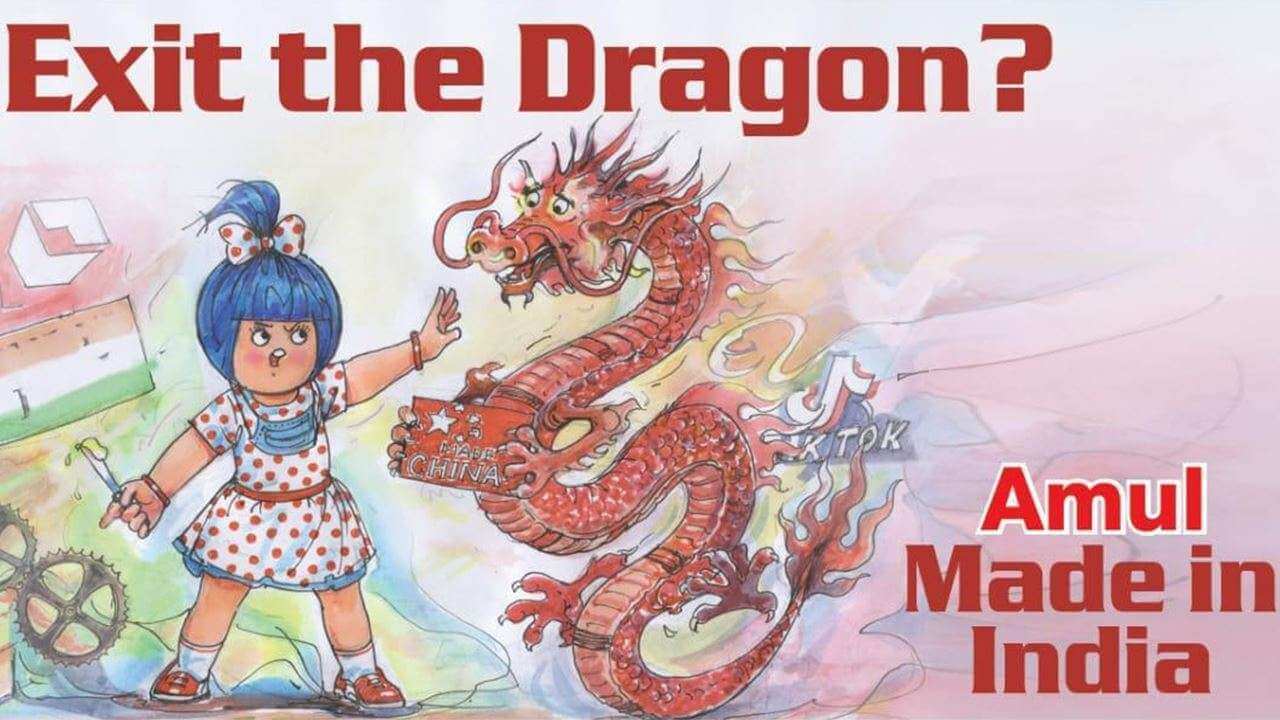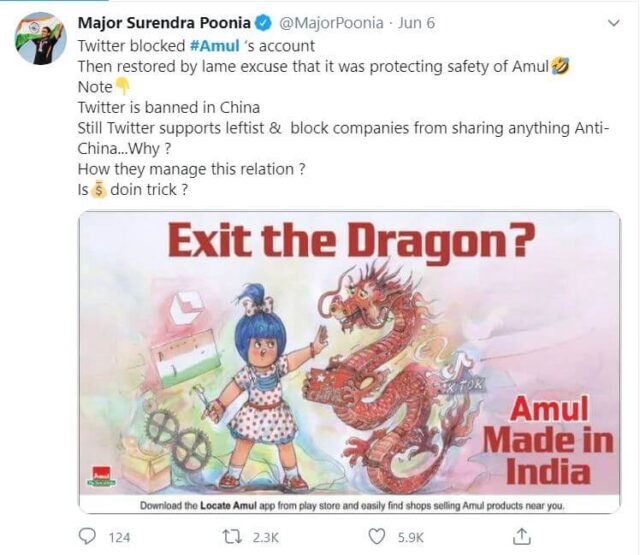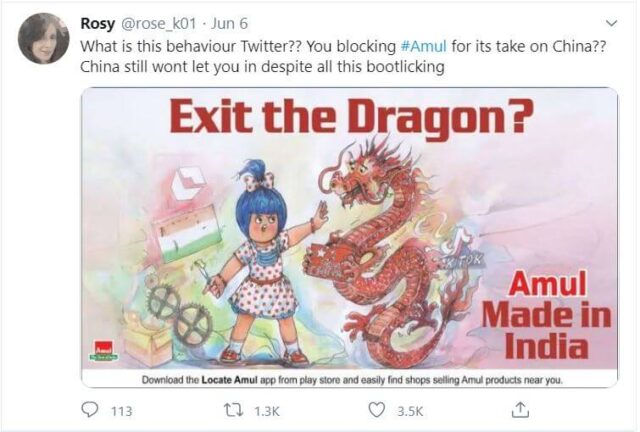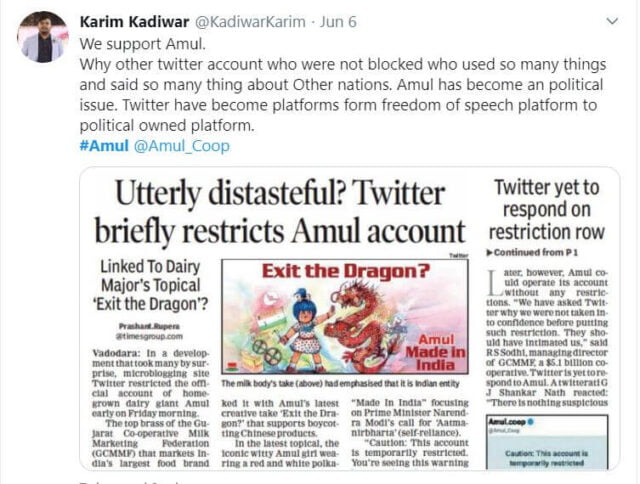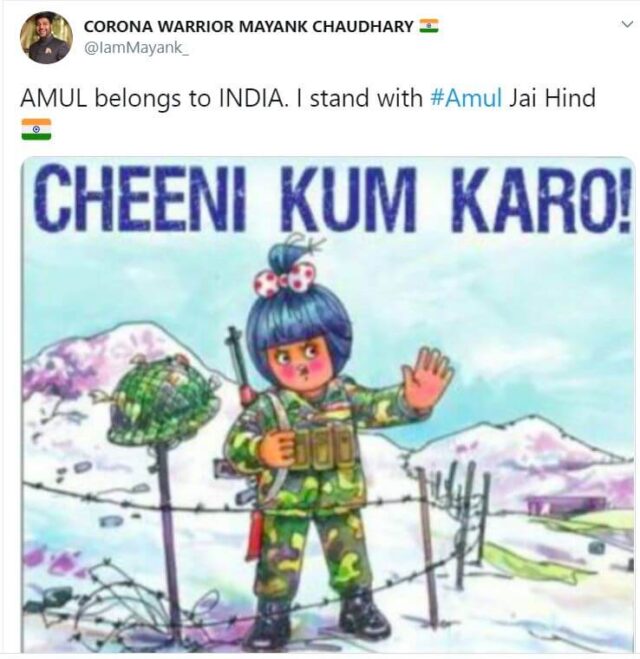Since Amul has established, it has actively voiced opinions on all sorts of current events from politics to movies through its topicals.
When Verghese Kurien established the cooperative in 1946, he held the ideals of self-reliance even back then. Now, the focus on becoming ‘Atmannirbhar‘ has again gained momentum.
The circumstances and key players might’ve changed but the motive and Amul’s creative advertising remains the same.
What’s an Amul topical?
Topical itself means a subject that is related to current events of immediate relevance. Amul topicals are short advertisements by Amul on all sorts of news which are filled with puns and cartoons.
Check out these catchy topicals on Indo-China conflicts from the 1970s to 2020:
1979: When the One-child policy of China came out
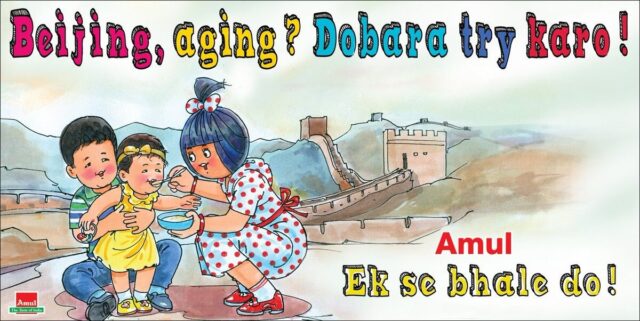
Sounds a little too harsh right? Amul thought so too when it said: “ek se bhale do“.
1989: When Dalai Lama won the Nobel Peace Prize
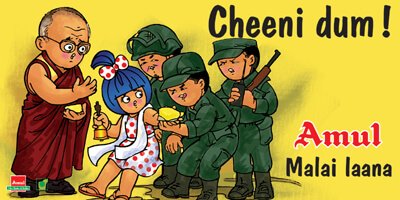
This Amul topical targeted the Chinese regression against India providing shelter to Tibet’s popular political leader.
Read More: What Is The Latest India-China LAC Standoff All About And What Is India Doing About It
1998: When China condemned peaceful nuclear tests in India

The topical showed the transition from “Hindi-Chini Bhai Bhai” to “Hindi-Chini bye-bye”.
2013: When China invaded East Ladakh
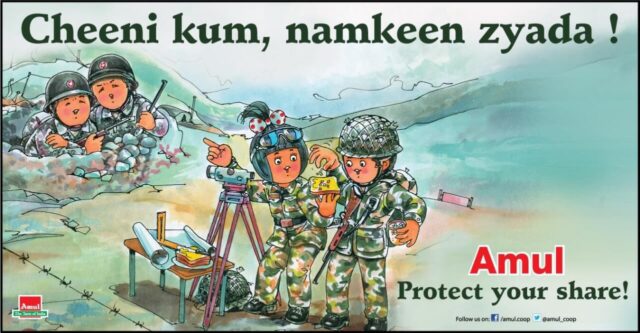
2014: Xi Jinping visits Narendra Modi in Ahmedabad
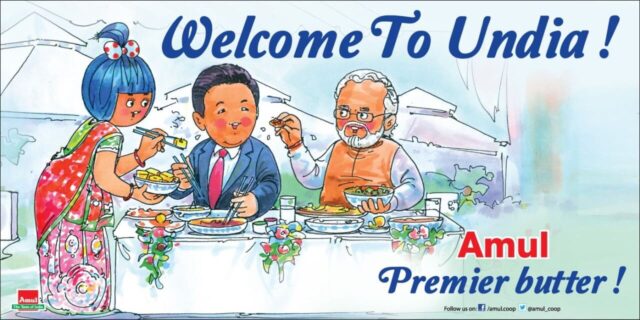
Since our Prime Minister Narendra Modi received them in Gujarat, Amul’s topical focused on Gujarati delicacies being served to Chinese delegates.
2020: India-China standoff in Eastern Ladakh
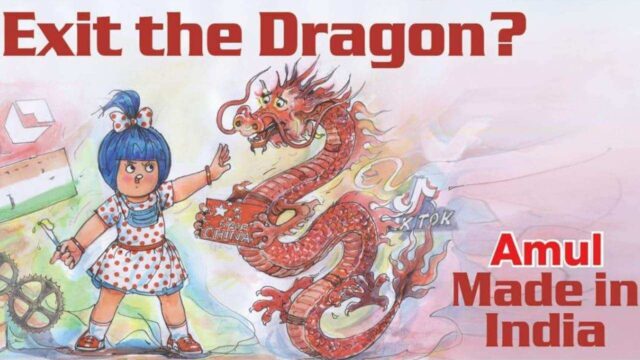

Amul has asked Twitter for a formal reply on the issue, since the only informal reply it has given is that the account was blocked for safety reasons.
The masses are blaming Twitter for taking sides on the issue.
Indians have been flooding social media in support of Amul, an old cooperative which still holds the trust of the country. The topicals have a huge role in building a warm relationship with their customers.
The cooperative sets an example for all young entrepreneurial initiatives and how they can flourish by actively engaging with customers and taking stances of all current affairs.
Image Credits: Google Images, Amul
Sources: Amul Hits, Times of India, Firstpost
Find Blogger at: @divijajainn
This post is tagged under: India China standoff, Ladakh border, Line of actual control, Amul, Amul Twitter, Exit the dragon, Indo-china conflicts, Dalai Lama, Kargil war, Amul cooperative, Amul topicals, Topcials, China, India, Boycott Twitter, Cheeni Kum Karo, Twitter trending, Beijing, Xi Jinping, One-child policy, Narendra Modi, #amul, Twitter reply to blocking amul’s account, taking sides, blame, chinese investment, #exitthedragon, uninstall chinese apps, atmanirbhar, vocal for local, don’t buy chinese products, promote indian products, buy swadesi, buy swadeshi, support local industries, amul topicals on china issues, amul ads on india china, amul posters on india china issues
Other Recommendations:
Indian Lieutenant Takes On A Chinese Major In The Recent India-China Fistfight At Sikkim Border



























